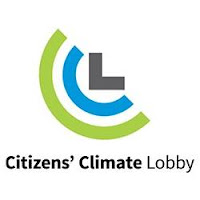Dr. Hayhoe offered several valuable points during her presentation, several of which are worth expanding upon.
Most scientists are conservative: Conservative in the true sense of the term, not the hijacked definition of "conservatism" that is prevalent in today's political circles. Scientists, and science in general, are inherently conservative. Science is built on incremental gains in knowledge derived over time from thousands of scientific studies looking at ever smaller pieces of the puzzle. With respect to climate science, rather than be "alarmist" (as climate deniers falsely claim), scientists actually have traditionally downplayed the risks from climate change. In fact, as more and more data are collected, and as we see climate change impacting Arctic sea ice, land-based ice sheet melting, and other visible signs of change, the data have clearly shown scientists that have been underestimating the dangers.
Scientists are hesitant to speak out: Historically, scientists have tended to stay in their "ivory towers" doing research, either in the laboratory or out in the field. They have left the communication of the science to others (e.g., journalists, teachers), and done the same for policy decisions (policy-makers). Part of the reason is that policy-making isn't particularly interesting to scientists, but part of it is because scientists have been so often attacked for simply documenting the science. You can ask Galileo about how trying to communicate science worked out for him, or in more recent times you can ask climate scientists like Ben Santer, Jim Hansen, and Michael Mann, all of whom have been viciously and falsely attacked by climate denier lobbyists.
The data are out there: One common fallacy is that the public will understand the need to take action if only we can just get more of the science to them. While communicating science to the public can often be difficult, the problem isn't a shortage of information or the lack of trying to get it across. Just in the last two years there have been a swarm of "state-of-the-science" reports, including (but not limited to) the IPCC AR5, the US Climate Assessment, a National Academy of Science/Royal Society report, and many others. All have the same basic message:
"warming of the climate system is unequivocal" and "human influence has been the dominant cause of the warming."
So the public has the information it needs to understand. Many do understand, while others either are too busy living their lives to care (which is perfectly fine) or choose to deny the science (which is not fine).
Many politicians are lying to their constituents: This may not be exactly how she phrased it, but it means the same thing. There are politicians who privately understand that human activity is warming the climate system but don't dare admit it in public. She says this is not uncommon. We know, for example, (my own example, not mentioned by Hayhoe) that Senator McCain had sponsored the cap-and-trade bill advocated for by Republican politicians, only to withdraw (and even deny ever having given) his support when the "tea party" screamed "socialism" (apparently forgetting it was a Republican proposal based on free market principles). A few current presidential hopefuls also suggest (in private) that they would acknowledge the science if they could do so without being attacked by their own party. But they deny it in public. To me this disqualifies them to be president.
This last point is the crux of the problem. No matter what scientists do to communicate the science to the public and to policy-makers, it is ultimately the responsibility of our elected officials to construct and pass policy action. President Obama has been doing what he can within the authority of the Executive Branch, but more comprehensive solutions are needed...and those solutions require Congressional action.
Which gets us back to CCL. The entire purpose of the Citizens' Climate Lobby conference in Washington DC is to engage in meetings with policy-makers. Citizen volunteers from around the country meet with staff and lawmakers to both educate and to learn how we can get honest and earnest discussion of policy options to deal with the unequivocal science. If you attended, please feel free to leave a comment about your experiences. If not, check out the Facebook page and website.
